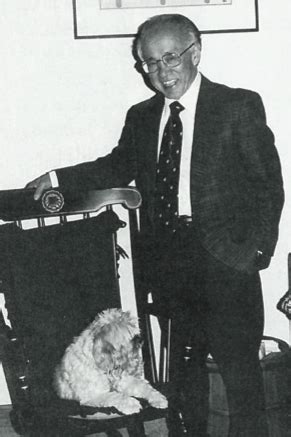A Quote by Tenzin Palmo
The dharma is the most precious thing in the world and we should put it at the center of our hearts and transform our whole lives into dharma practice. Otherwise, at the time of death, we will look back and say, now what was all that about? If we truly want to benefit others and ourselves, we have to do it. No excuses.
Related Quotes
The art of dharma practice requires commitment, technical accomplishment, and imagination. As with all arts, we will fail to realize its full potential if any of these three are lacking. The raw material of dharma practice is ourself and our world, which are to be understood and transformed according to the vision and values of the dharma itself. This is not a process of self- or world- transcendence, but one of self- and world- creation.
We live in a society which is heading in one direction, so it's good to have at least a few friends who share the same values and can encourage us and help us to remember that we're not alone or peculiar, but that what we're doing is a very valid way of life. This will encourage us to put the Dharma at the centre of our life and not the periphery, to use our daily life as our Dharma practice.
We underestimate the value of patience. It is possible that people might sometimes interrupt our meditation sessions or Dharma study, but they can never take away our opportunity to train in inner virtues such as patience. It is this mental training, rather than outer virtuous activities, that is the essence of Dharma practice.
Item one: the law of the will. We just talked about this: one should only do that which truly fills our hearts with enthusiasm. If we brush this aside, if we put off the moment to live that which we dream of, we lose the energy necessary for any important transformation in our lives. Someone once put this most succinctly: “I don’t know the secret of success - but the secret of failure is to always try to follow the will of others.
Practice can be stated very simply. It is moving from a life of hurting myself and others to a life of not hurting myself and others. That seems so simple-except when we substitute for real practice some idea that we should be different or better than we are, or that our lives should be different from the way they are. When we substitute our ideas about what should be (such notions as "I should not be angry or confused or unwilling") for our life as it truly is, then we're off base and our practice is barren.
Dharma has several connotations in South Asian religions, but in Buddhism it has two basic, interrelated meanings: dharma as 'teaching' as found in the expression Buddha Dharma, and dharma as 'reality-as-is' (abhigama-dharma). The teaching is a verbal expression of reality-as-is that consists of two aspects-the subject that realizes and the object that is realized. Together they constitute 'reality-as-is;' if either aspect is lacking, it is not reality-as-is. This sense of dharma or reality-as-is is also called suchness (tathata) or thatness (tattva) in Buddhism.
Most people think of love as some sort of power outside of themselves that will "take them away from all of this." Sadly, this is not the case. Love exists only within our own hearts, and to have happy relationships we must first become truly loving people. And as we fill our hearts with love by expressing love for others in thought, word, and deed ("acting as if" until we make it happen if necessary), that love can heal our own lives, help to solve our problems, and enable us to feel good about ourselves.
I truly believe that forgiveness is the fast track to greater love and it's the path that can really heal all. We all have areas of our own lives where we have a hard time forgiving, whether it's with ourselves, or others, but when we can practice forgiveness, many of our self-destructive habits will begin to fade away.





























